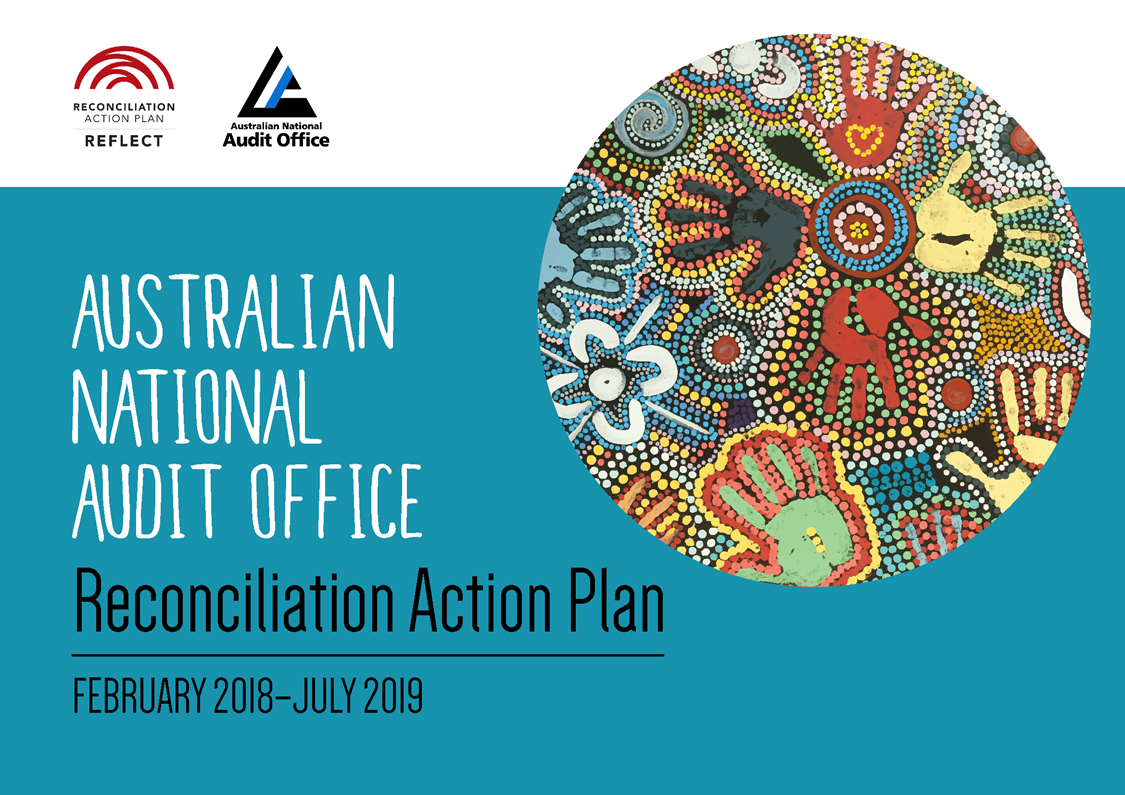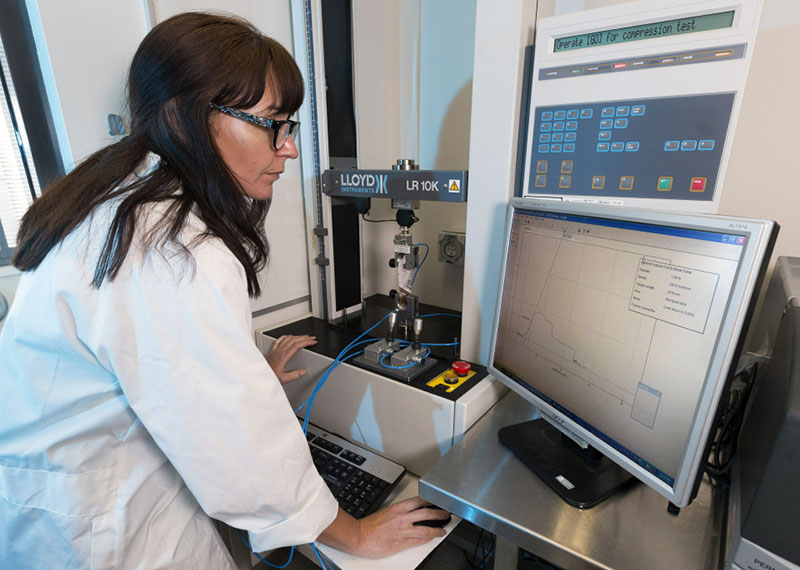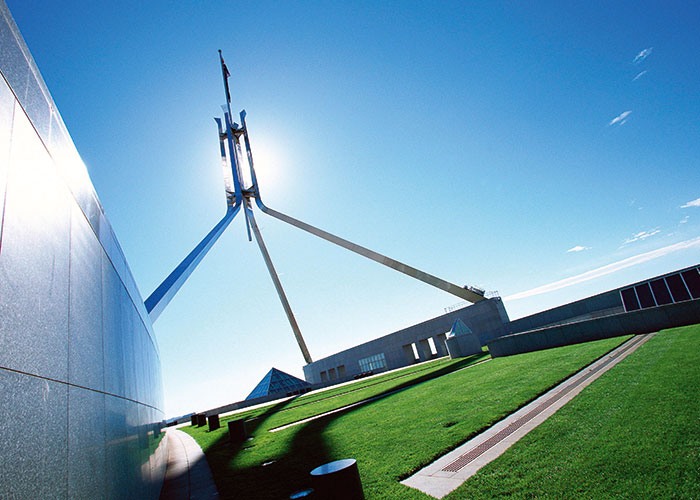Browse our range of reports and publications including performance and financial statement audit reports, assurance review reports, information reports and annual reports.
The overall aim of the National Drugs Campaign is to contribute to a reduction in the uptake of illicit drugs among young Australians, by raising awareness of the harms associated with drug use and encouraging and supporting decisions not to use. It is also intended to encourage young people using methamphetamines to reconsider their use and direct them to relevant support, counselling and treatment services.
The overall aim of the National Drugs Campaign is to contribute to a reduction in the uptake of illicit drugs among young Australians, by raising awareness of the harms associated with drug use and encouraging and supporting decisions not to use. It is also intended to encourage young people using methamphetamines to reconsider their use and direct them to relevant support, counselling and treatment services.
The Digital Switchover campaign aims to provide all Australians with a smooth transition from analogue to digital television. Phase Two is a two-pronged approach of multi-regional communications targeting the broader Australian population, combined with further targeted communications in each switchover area prior to the analogue signals being switched off. The first region to switch over is the Mildura/Sunraysia region on the 30 June 2010.Tailored local communications including NESB materials will be targeted to this region from January 2010 untiltwo weeks past the switchover date.
The campaign aims to educate the public that people living with Alzheimer's and/or Dementia are at risk of becoming a missing person, and the public can help by 'keeping an eye out' for these people who may affected by memory loss and while in a state of confusion, may not be able to find their way home or remember who they are. The campaign also aims to drive people to seek further information, via the website and call centre.
The campaign is designed to raise awareness and prompt call to action in Micro and SME businesses eligible for the Small and General Business Tax Break (BTB).
The communications campaign is to encourage people to lodge at an 07/08 tax return and to update their address and direct deposit details with the ATO and to manage expectations about the arrival date for the funds, and what to do if the monies are not received.
The campaign's objectives are to encourage people, for whom English is not a convenient language, to lodge an 07/08 tax return and to update their address and direct deposit details with the ATO, to manage expectations about the arrival date for the payments and provide information about what to do if the payments are not received.
The campaign's objectives are to encourage people, for whom English is not a convenient language, to lodge an 07/08 tax return and to update their address and direct deposit details with the ATO, to manage expectations about the arrival date for the payments and provide information about what to do if the payments are not received.
Electronic Medicare claiming allows patients to claim their Medicare rebate electronically at the doctor's surgery. The purpose of the campaign is to increase public awareness and use of this scheme and to encourage medical service providers such as doctor's surgeries to take up the scheme.
The objectives of the campaign are to increase knowledge and awareness of the Education Tax Refund, the need to keep receipts, eligibility requirements, and how to claim the refund, with the overall objective of encouraging eligible Australians to make a claim for a rebate.
The campaign for the National STI Prevention Program is designed to inform young Australians aged 15-29 years about the transmission, symptoms, treatment and prevention of STIs, and encourage safe sexual behaviour to contribute to a reduction in the prevalence of sexually transmissible infections among this age group.
This campaign aims to attract the right people to sustain and enhance Defence capability by generating enough enquiries to successfully meet Australian Defence Force's recruitment target. The radio commercials advertise the Navy's technical trade positions and have been developed to enhance and support the current suite of Navy commercials.
As part of its recruitment activities, the Army has a sponsorship arrangement with the AFL to capitalise on the AFL's strong following amongst the 17-24 age groups, which is the Defence Force Recruiting target market. The sponsorship saw the development of the AFL Army Award, which recognises and rewards the common values of the Army and the AFL. The advertising campaign is designed to promote the sponsorship and encourage AFL supporters to vote for nominated players for the AFL Army Award, with the overall objective of attracting members of the target audience to consider a career in the Australian Defence Force.
The campaign's objectives are to encourage people to lodge an 07/08 tax return and to update their address and direct deposit details with the ATO, to manage expectations about the arrival date for the payments and provide information about what to do if the payments are not received.
The campaign's objectives are to raise awareness of the harms and costs to young people, their families, communities and society associated with drinking to intoxication, to encourage young people and their parents to question the acceptability and impact of intoxicated behaviour, to highlight the influence that parental attitudes to alcohol misuse and adult behaviour and drinking to intoxication can have on others and provide referral and support information for those who recognise a need to seek help.
The ABHI campaign is an information campaign, largely in cooperation with other states (excl Victoria) which promotes improved public health and reduced incidence of chronic disease. The campaign aims to update public perceptions on lifestyle choices and risk factors leading to obesity and resultant disease. It is anticipated that people will take positive action to be more active and modify their diet, leading to a reduction in instances of diseases.
The objective of the Liquids Aerosols and Gels (LAGS) Trials is to assess the capability of various screening technologies to detect explosives in LAGs, with the ultimate objective of providing information to the Australian Government on the effectiveness and efficiency of the screening technology (in aviation security). The proposed public awareness strategy aims to raise awareness of the Trials amongst the travelling public, encourage their participation, and inform them of their rights and obligations during the Trials.
The audit objective was to assess the effectiveness of the management of Machinery of Government (MoG) changes by the selected Australian Government entities.
Please direct enquiries relating to reports through our contact page.
The objective of the audit was to examine the effectiveness of the Australian Government Reconstruction Inspectorate, supported by the National Disaster Recovery Taskforce, in providing assurance that value for money is being achieved in respect to Queensland reconstruction projects.
Please direct enquiries relating to reports through our contact page.
The campaign's objective is to raise awareness and understanding of the Secure and Sustainable Pension reforms announced in the 2009-10 Budget measures, and in particular how they relate to the individual circumstances of current pension recipients for whom English is not a convenient language.
The campaign's objective is to inform job seekers and employers of the change from the Job Network system to Job Services Australia.
The Economic Security Strategy (ESS) campaign is intended to inform the community of aspects of the Australian Government's response to the global financial crisis. This campaign is designed to raise awareness of the financial assistance, in the form of lump sum payments, including access and eligibility requirements. Phase One is targeted at over five million pensioners, carers, seniors, people with a disability, veterans and families.
The objective of this audit was to examine whether the Department of Infrastructure, Transport, Regional Development and Communications exercised appropriate due diligence in its acquisition of the ‘Leppington Triangle’ land for the future development of the Western Sydney Airport.
Please direct enquiries through our contact page.
The Defence Force Recruitment Campaign is designed to attract the right people to sustain and enhance Defence capability by generating enough enquiries to successfully meet Australian Defence Force's (ADF) recruitment target. The Navy Brand advertising is intended to convey the key messages associated with the Navy.
This campaign aims to attract the right people to sustain and enhance Defence capability by generating enough enquiries to successfully meet Australian Defence Force's (ADF) recruitment target. The cut down versions of the Navy television commercials are intended to provide greater flexibility in placing the advertisements and without loss of impact.
This campaign aims to attract the appropriate people to sustain and enhance Defence capability by generating enough enquiries to successfully meet Australian Defence Force's (ADF) recruitment target. The campaign is designed to create a greater level of awareness, among Australia's Indian and Arabic populations, of the Australian Defence Force (ADF) as an employer of culturally diverse Australians.
The campaign objectives are to raise awareness of undergraduate and graduate health positions in the ADF and to communicate that the roles provide the opportunity for intelligent, everyday people to do extraordinary and worthwhile jobs
The campaign aims to encourage nurses and midwives who are currently outside the nursing workforce to return to nursing by providing cash bonuses of up to $6,000 to eligible nurses and $1,000 to the employers as retraining contribution.
The campaign's objectives are to encourage people to lodge an 07/08 tax return and to update their address and direct deposit details with the ATO, to manage expectations about the arrival date for the payments and provide information about what to do if the payments are not received.
This campaign was designed to educate Australians about the importance of protecting themselves against avoidable blindness and vision loss.
The aim of the campaign is to contribute to a reduction in the uptake of methamphetamines and other illicit drugs among young Australians, by raising awareness of the harms associated with drug use and by encouraging and supporting decisions not to use. It is also intended to encourage young people using methamphetamines to reconsider their use and direct them to relevant support, counselling and treatment services.
The campaign's objectives are to encourage people to lodge an 07/08 tax return and to update their address and direct deposit details with the ATO, to manage expectations about the arrival date for the payments and provide information about what to do if the payments are not received.
The campaign's objectives are to encourage people, for whom English is not a convenient language, to lodge an 07/08 tax return and to update their address and direct deposit details with the ATO, to manage expectations about the arrival date for the payments and provide information about what to do if the payments are not received.
The campaign's objective is to inform Centrelink customers who are in or commence a same sex relationship about changes to their entitlements and obligations as a result of the Same Sex Relationships (Equal Treatment in Commonwealth Laws - General Law Reform) Act 2008.
The campaign's objective is to promote the National Security Hotline (NSH) and remind Australians to be vigilant and report possible signs of terrorism to the NSH.
The Australian Government has identified cancer as one of the seven National Health Priority Areas. The campaign targets young Australians 13-24 years of age and young adults 18-24 years of age as they have the worst sun protection behaviours and the highest frequency of sunburn. The campaign aims to educate young Australians about the importance of protecting themselves from skin cancer in five ways (hat, shade, sunscreen, sunglasses and sun protective clothing).
The purpose of the campaign is to:
- raise traveller awareness of SmartGate (an automated passenger processing system utilising ePassports);
- encourage travellers to choose to use SmartGate;
- increase current usage; and
- guide travellers how to use it before they arrive at the Customs border.
The use of SmartGate is voluntary as eligible travellers have the option of being processed manually by a Customs Officer.
The campaign is a community awareness campaign designed to raise awareness of Australia's quarantine laws and of the particular risks of bringing foreign items into Australia.
The Auditor-General responded on 21 August 2020 to correspondence from the Hon Mark Butler MP dated 26 July 2020, requesting that the Auditor-General review the integrity of the Supporting Reliable Energy Infrastructure Program, in particular with reference to the grant to Shine Energy. The Auditor-General provided a follow-up response on 16 September 2020.
Please direct enquiries relating to requests through our contact page.
The objective of the audit was to assess whether the APVMA is performing its key regulatory functions effectively. In particular, the audit examined the APVMA's arrangements for:
- planning and overseeing the delivery of regulatory functions;
- registering pesticides and veterinary medicines in a timely manner;
- obtaining external scientific advice to support the registration function;
- monitoring the quality of pesticides and veterinary medicines approved for sale in Australia; and
- administering its cost recovery framework.
The audit objective was to assess the effectiveness of the management of underperformance in the Australian Public Service (APS) and identify opportunities for improvement.
Please direct enquiries relating to reports through our contact page.
The audit objective was to assess the effectiveness of the Department of Infrastructure and Regional Development's regulation of passenger security screening at Australian domestic airports.
Please direct enquiries relating to reports through our contact page.
The Auditor-General responded on 1 July 2021 to correspondence from the Hon Brendan O'Connor MP and Mr Tim Watts MP dated 5 June 2021, requesting that the Auditor-General consider initiating a performance audit into the use of provisional ICT accreditation within Defence.
Please direct enquiries relating to requests through our contact page.
The aim of the May to July 2010 burst of campaign advertising for the National Security Campaign is to build upon previous phases of the campaign through continuing to remind Australians to remain vigilant and to report possible signs of terrorism related activity to the National Security Hotline on 1800 1234 00.
The campaign for the National STI Prevention Program is designed to inform young Australians aged 15-29 years about the transmission, symptoms, treatment and prevention of STIs, and encourage safe sexual behaviour to contribute to a reduction in the prevalence of sexually transmissible infections among this age group.
The Digital Switchover campaign aims to provide all Australians with a smooth transition from analogue to digital television. The first region to switch over to digital television will be Mildura/Sunraysia on 30 June 2010 and the second region will be Regional South Australia & Broken Hill on 15 December 2010. Tailored local communications will be launched in Regional South Australia and Broken Hill from 28 March 2010, and they will include the date of digital switchover for that region.
The overall aim of the campaign activity is to contribute to a reduction in the uptake and prevalence of smoking among young Australians.
This campaign aims to attract the right people to sustain and enhance Defence capability by generating enough enquiries to successfully meet Australian Defence Force's (ADF) recruitment target. The campaign has been developed to position the ADF as a preferred employer among the target audience by establishing the brand positions of each of the services and by advertising a range of positions offered in the ADF.
The Digital Switchover Campaign aim is to provide all Australians with a smooth transition from analogue to digital television by 31 December 2013. The second phase of the campaign aims to maintain awareness levels and drive conversion, especially in areas where the switchover is imminent, while also ensuring that that those households who have not yet converted to digital are aware of what will happen if they don't.
The campaign's objective is to raise awareness and understanding of the Secure and Sustainable Pension reforms announced in the 2009-10 Budget measures, and in particular how they relate to the individual circumstances of current pension recipients.
The campaign is intended to inform employers and members of the Reserves of their rights and obligations, and raise awareness and understanding of the benefits associated with the employment of Reserves.
The campaign is designed to raise awareness and prompt call to action in Micro and SME businesses eligible for the Small and General Business Tax Break (BTB).
To inform jobseekers of the change from the Job Network system to Job Services.
This campaign aims to attract the right people to sustain and enhance Defence capability by generating enough enquiries to successfully meet Australian Defence Force's (ADF) recruitment target. The campaign has been developed to position the ADF as a preferred employer among the target audience by establishing the brand positions of each of the services and by advertising a range of positions offered in the ADF.
The campaign's objective is to inform jobseekers of the change from the Job Network system to Job Services Australia.
To inform jobseekers of the change from the Job Network system to Job Services Australia.
The campaign's objective is to inform jobseekers of the change from the Job Network system to Job Services Australia.
Electronic Medicare claiming allows patients to claim their Medicare rebate electronically at the doctor's surgery. The purpose of the campaign is to increase public awareness and use of this scheme and to encourage medical service providers such as doctor's surgeries to take up the scheme.
This campaign aims to attract the right people to sustain and enhance Defence capability by generating enough enquiries to successfully meet Australian Defence Force's recruitment target. The radio commercials have been developed to position ADFA as a preferred study option among the target audience.
The objectives of the campaign are to increase knowledge and awareness of the Education Tax Refund, the need to keep receipts, eligibility requirements, and how to claim the refund, with the overall objective of encouraging eligible Australians to make a claim for a rebate.
The Anti-Money Laundering and Counter-Terrorism Financing Act 2006 (AML/CTF Act) forms part of a legislative package that implements reforms to Australia's anti-money laundering and counter-terrorism financing regulatory regime. There are elements of the Act that did not commence until December 2008. This campaign is focused on targeted public awareness regarding the new elements of the Act.
This campaign aims to attract the right people to sustain and enhance Defence capability by generating enough enquiries to successfully meet Australian Defence Force's (ADF) recruitment target. The campaign has been developed to position the ADF as a preferred employer among the target audience by establishing the brand positions of each of the services and by advertising a range of positions offered in the ADF.
The campaign's objectives are to raise awareness of the harms and costs to young people, their families, communities and society associated with drinking to intoxication, to encourage young people and their parents to question the acceptability and impact of intoxicated behaviour, to highlight the influence that parental attitudes to alcohol misuse and adult behaviour and drinking to intoxication can have on others and provide referral and support information for those who recognise a need to seek help.
The objective of the audit was to assess whether the award of funding under the Building Better Regions Fund was effective as well as being consistent with the Commonwealth Grant Rules and Guidelines.
Please direct enquiries through our contact page.
The objective of the ANAO's audit was to examine the effectiveness of DAFF's implementation and administration of the buyback of fishing concessions under the Securing our Fishing Future structural adjustment package.
The Digital Switchover campaign aims to provide all Australians with a smooth transition from analogue to digital television. Phase Two is a two pronged approach of multi-regional communications targeting the broader Australian population, combined with further targeted communications in each switchover area prior to the analogue signals being switched off. The first region to switchover is the Mildura/Sunraysia region on the 30 June 2010. Tailored local communications will be targeted to this region from January 2010 until 2 weeks past the switchover date.
The campaign for the National STI Prevention Program is designed to inform young Australians aged 15-29 years about the transmission, symptoms, treatment and prevention of STIs, and encourage safe sexual behaviour, to contribute to a reduction in the prevalence of sexually transmissible infections among this age group.
The objectives of the campaign are to increase knowledge and awareness of the Education Tax Refund, the need to keep receipts, eligibility requirements, and how to claim the refund, with the overall objective of encouraging eligible Australians to make a claim for a rebate.
The Auditor-General responded on 11 December 2020 to correspondence from the Hon Richard Marles MP dated 16 November 2020, requesting that the Auditor-General conduct an investigation to examine the Future Submarine and Future Frigate programs.
The Auditor-General provided a follow-up response to Mr Marles on 19 March 2021.
Please direct enquiries relating to requests through our contact page.
The objective of the audit was to assess the Australian Customs and Border Protection Service's administration of the Tariff Concession System.
Please direct enquiries relating to reports through our contact page.
The Auditor-General responded on 11 March 2020 to follow-up correspondence from Senator Sarah Hanson-Young, requesting an audit into the Federal and South Australian governments’ agreement to reduce SA’s Murray-Darling river water allocation by 100GL and Commonwealth funding provided to increase the use of the state’s desalination plant to replace the water. The Auditor-General responded to the original correspondence from Senator Hanson-Young on 19 December 2019. The Auditor-General provided a follow-up response to Senator Hanson-Young on 24 July 2020.
Please direct enquiries relating to requests for audit through our contact page.
The ANAO was invited to prepare a paper for an international conference on the role of supreme audit Institutions in combatting corruption for the advancement of transparency, public integrity, and good governance. The international conference formed part of the celebrations for the 30th anniversary of the establishment of the State Audit Office of Viet Nam and was held from 8-12 July 2024,
Please direct enquiries through our contact page.
The audit objective was to assess the effectiveness of the design and implementation of round two of the National Stronger Regions Fund.
Please direct enquiries relating to reports through our contact page.
This campaign forms part of the main Defence Force Recruitment (July-December 2009) Campaign and is intended to raise awareness of a diverse range of jobs available in the Air Force.
The campaign's objective is to inform jobseekers of the change from the Job Network system to Job Services Australia.
The campaign's objective is to promote the National Security Hotline (NSH) and remind Australians to be vigilant and report possible signs of terrorism to the NSH.
The objective of the audit was to assess the effectiveness of the Australian Customs and Border Protection Service's management of the Cape Class patrol boat program.
Please direct enquiries relating to reports through our contact page.
The objective of the audit was to examine the effectiveness of the Department of Defence’s planning, budgeting and implementation of an electronic health records solution for Defence personnel.
Please direct enquiries relating to reports through our contact page.
The objective of the audit was to assess how effectively and efficiently the Australian Taxation Office managed contact centres as part of its overall service delivery.
Please direct enquiries relating to reports through our contact page.
The objective of the audit was to assess the effectiveness of the Australian Taxation Office’s administration of capital gains tax for individual and small business taxpayers.
Please direct enquiries relating to reports through our contact page.
The Auditor-General responded on 23 December 2020 to correspondence from the Hon Dr Andrew Leigh MP dated 8 December 2020, requesting that the Auditor-General conduct an investigation to examine the JobKeeper scheme. The Auditor-General provided a follow-up response on 8 February 2021, advising the Hon Dr Andrew Leigh MP that a performance audit Administration of the JobKeeper Scheme has commenced.
The Auditor-General responded on 26 March 2021 to follow-up correspondence from the Hon Dr Andrew Leigh MP dated 2 March 2021, requesting that the Auditor-General explore specific aspects of the JobKeeper scheme.
Please direct enquiries relating to request for audit through our contact page.
The audit objective was to assess the effectiveness of the establishment, implementation and operation of the Early Years Quality Fund against the requirements of the Early Years Quality Fund Special Account Act 2013 and the Commonwealth grants administration framework.
Please direct enquiries relating to reports through our contact page.
The objective of the audit was to assess whether the award of funding under the Community Sport Infrastructure Grant Program was informed by an appropriate assessment process and sound advice.
Please direct enquiries through our contact page.
The audit objective was to examine the effectiveness of the Department of Human Services’ administration of the Australian Childhood Immunisation Register.
Please direct enquiries relating to reports through our contact page.
The ANAO confirms its commitment to reconciliation with Aboriginal and Torres Strait Islander peoples through the development and implementation of this Reconciliation Action Plan (RAP).
Please direct enquiries through our contact page.
The objective of the audit was to assess the effectiveness of the Department of Veterans’ Affairs’ and the Department of Defence’s administration of the Australian Government’s $55 million support package announced in the May 2010 Budget for former F-111 fuel tank maintenance workers and their families. The audit examined the implementation of the 14 agreed recommendations in the Government Response to the 2009 Parliamentary Inquiry into the F-111 deseal/reseal issues, which formed the basis of the May 2010, F-111 support package.
Please direct enquiries relating to reports through our contact page.
The objective of the audit was to review the effectiveness and efficiency of Centrelink's customer feedback system and the progress Centrelink had made in implementing the recommendations of the 2004–05 audit and the subsequent JCPAA inquiry.
The objective of the audit was to review the operation of the ATO's Tax Agent and Business Portals. In conducting the audit the ANAO examined three key areas: governance – the governance arrangements supporting ongoing management of the Portals; portals development, user satisfaction and realisation of expected benefits – the ATO's processes for involving users in developing the Tax Agent and Business Portals, assessing user satisfaction, and evaluating business benefits arising from uptake of the Portals; and information technology (IT) security and user access controls – the ATO's IT security environment and user access controls supporting the operation of the Tax Agent and Business Portals.
The objective of this audit was to examine the effectiveness of the design and early implementation of the National Soil Strategy and the supporting National Soil Action Plan.
Please direct enquiries through our contact page.
The audit objective was to assess the effectiveness of Health's implementation of the Diagnostic Imaging Review Reform Package, some three years into the five year reform period.
Please direct enquiries relating to reports through our contact page.
The objective of the audit was to assess the effectiveness of the Phoenix Taskforce to combat illegal phoenix activities.
Please direct enquiries through our contact page.
The audit objective was to assess the effectiveness of the Department of Health’s records management arrangements, including Health’s progress in transitioning to digital records management.
Please direct enquiries relating to reports through our contact page.
The audit objective was to assess the departments of Health and Human Services’ administration, including oversight and monitoring arrangements, for the Indemnity Insurance Fund.
Please direct enquiries relating to reports through our contact page.
The objective of the audit was to assess the effectiveness of AGD's arrangements for coordinating the development of the National Identity Security Strategy.
The ANAO's assessment was based on the following criteria:
- governance arrangements for the NISS;
- progress, to date, of the six NISS elements; and
- AGD's administrative arrangements for developing the NISS.
The audit objective was to assess the effectiveness of the management of international travel restrictions during the COVID-19 pandemic.
Please direct enquiries through our contact page.
The objective of this audit was to examine the effectiveness of the design and implementation of the Department of the Prime Minister and Cabinet’s (PM&C’s) evaluation framework for the Indigenous Advancement Strategy (IAS), in achieving its purpose to ensure that evaluation is high quality, ethical, inclusive and focused on improving outcomes for Indigenous Australians.
Please direct enquiries through our contact page.
The objective of this audit was to assess how effectively the Defence Science and Technology Group (DSTG) administers the science and technology work it undertakes for the Australian Defence Organisation.
Please direct enquiries relating to reports through our contact page.
The objective of this audit was to assess the effectiveness of the Australian Reinsurance Pool Corporation’s (ARPC) management of the Terrorism Reinsurance Scheme.
Please direct enquiries through our contact page.
The objective of the audit was to examine the effectiveness of Industry’s administration of the Ethanol Production Grants Program, including relevant advice on policy development.
The objective of this audit was to assess the effectiveness of the Department of Communications and the Arts’ assessment and selection of base stations for funding under the first round of the Mobile Black Spot Programme.
Please direct enquiries relating to reports through our contact page.
The objective of this audit was to assess whether the National Library of Australia and National Film and Sound Archive (NFSA) have implemented effective collection management practices.
Please direct enquiries through our contact page.
The objective of the audit was to assess the effectiveness of the Australian Securities and Investments Commission’s administration of enforceable undertakings.
Please direct enquiries relating to reports through our contact page.
The audit objective was to assess the effectiveness of the (former) Department of Industry’s administration of the Australian Apprenticeships Incentives Program.
Please direct enquiries relating to reports through our contact page.
The audit objective was to assess whether the Department of Defence's (Defence's) arrangements for the operation and maintenance of the Mulwala and Benalla facilities beyond June 2020 were established through appropriate processes and in accordance with the Commonwealth Procurement Rules (CPRs).
Please direct enquiries through our contact page.
The Auditor-General responded on 29 July 2021 to correspondence from Ms Michelle Rowland MP and Senator Kimberley Kitching dated 9 July 2021, requesting that the Auditor-General conduct an investigation to examine NBN Co Limited executive bonuses for the 2019–2020 financial year and the legitimacy of the underlying targets to which the bonuses were linked.
Please direct enquiries relating to requests for audit through our contact page.
The audit objective was to examine the selected entities’ effectiveness in implementing entity-wide fraud control arrangements, including compliance with the requirements of the 2011 Commonwealth Fraud Control Guidelines (2011 Guidelines), and the overall administration of the fraud control framework by the Attorney-General’s Department.
The objective of this audit was to assess whether the Productivity Commission is effectively managing the use of corporate credit cards for official purposes in accordance with legislative and entity requirements.
Please direct enquiries through our contact page.
The objective of the audit was to examine the effectiveness of spectrum reallocation to support the deployment of 5G services.
Please direct enquiries through our contact page.
The objective of this audit was to assess the effectiveness of the Department of Social Services’ role in implementing the National Plan to Reduce Violence Against Women and their Children 2010–2022 (the National Plan).
Please direct enquiries through our contact page.
The objective of the audit was to assess the effectiveness of the Australian Taxation Office’s (ATO’s) complaints and other feedback management systems in supporting service delivery.
Please direct enquiries relating to reports through our contact page.
The objective of the audit was to assess the effectiveness of the department’s regulation of appliance and equipment energy efficiency standards.
Please direct enquiries through our contact page.
The objective of the audit was to assess the ATO's administration of activity statement HRRs. Specifically the audit sought to: examine aspects of ATO governance relevant to its administration of activity statement HRRs. This includes: ATO planning, the integration between Lines to administer HRRs; corporate risk management processes; and performance management; assess the ATO's methodology and practice to identify and, if necessary, correct activity statement HRRs; and identify and assess the Information Technology (IT) and manual systems, processes and controls used by the ATO to process HRRs resulting from the lodgement of activity statements.
The audit objective was to assess the effectiveness of the Department of Defence's management of the disposal of specialist military equipment.
Please direct enquiries relating to reports through our contact page.
The audit objective was to assess the effectiveness of the Department of the Environment and Energy's award of funding under the 20 Million Trees Programme.
Please direct enquiries relating to reports through our contact page.
The audit objective was to assess whether the Australian Government has established an appropriate framework for responding to crises.
Please direct enquiries through our contact page.
The objective of the audit was to assess the effectiveness of the Department of Parliamentary Services’ management of assets and contracts to support the operations of Parliament House.
Please direct enquiries relating to reports through our contact page.
The objective of the audit was to assess whether appropriate steps were taken to protect the Commonwealth’s interests and obtain value for money in respect to the:
- approval of $1.5 billion in Commonwealth funding for stage one of the East West Link project, and the June 2014 payment of $500 million of this funding; and
- approval of $1.5 billion in Commonwealth funding for stage two of the East West Link project, and the June 2014 payment of $1 billion of this funding.
Please direct enquiries relating to reports through our contact page.
The objective of the audit was to assess the effectiveness of the administration of the Australian Prudential Regulation Authority (APRA) financial industry levies.
Please direct enquiries relating to reports through our contact page.
The objective of the audit was to examine whether the UP and CPP services provided by the Australian Federal Police Protection Service are being managed effectively. In particular, the audit examined:
- whether the Protection function has been effectively integrated into the AFP, and sound arrangements are in place to strategically plan Protection services and manage risks;
- whether Protection staff have access to appropriate training and guidance; and
- the management arrangements for UP and CPP services.
The audit assessed whether FaCS effectively undertakes its coordination, monitoring and other roles according to the CSTDA. The audit examined all disability services provided for under the CSTDA, except for disability employment services. The ANAO met relevant officers from FaCS' national office and State and Territory offices, and with 22 stakeholder organisations including: advocacy groups; peak national and State bodies representing the interests of disability service providers and people with disabilities; members of national and State Disability Advisory Bodies funded by FaCS; State and Territory governments; relevant Australian Government agencies; In particular, the Department of Health and Ageing and the Australian Institute of Health and Welfare. and local government bodies. Fieldwork for the audit was primarily undertaken during the period September 2004 to February 2005.








































